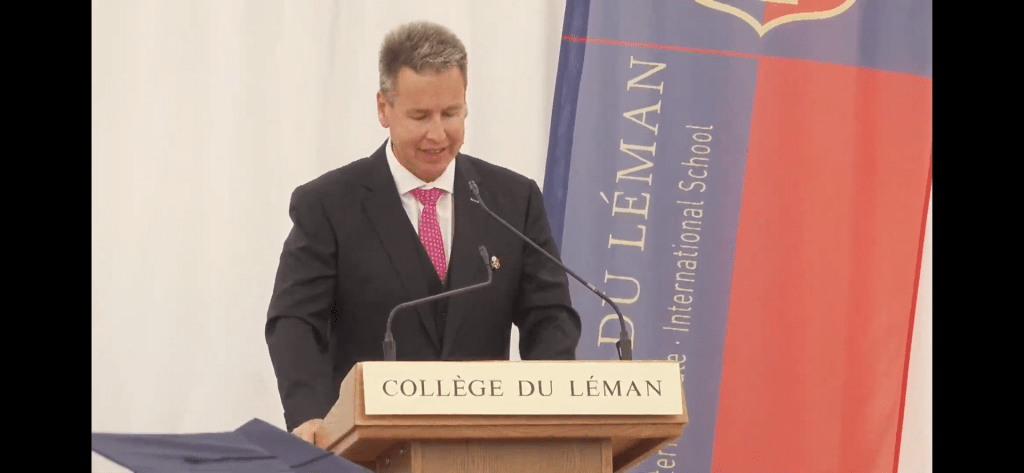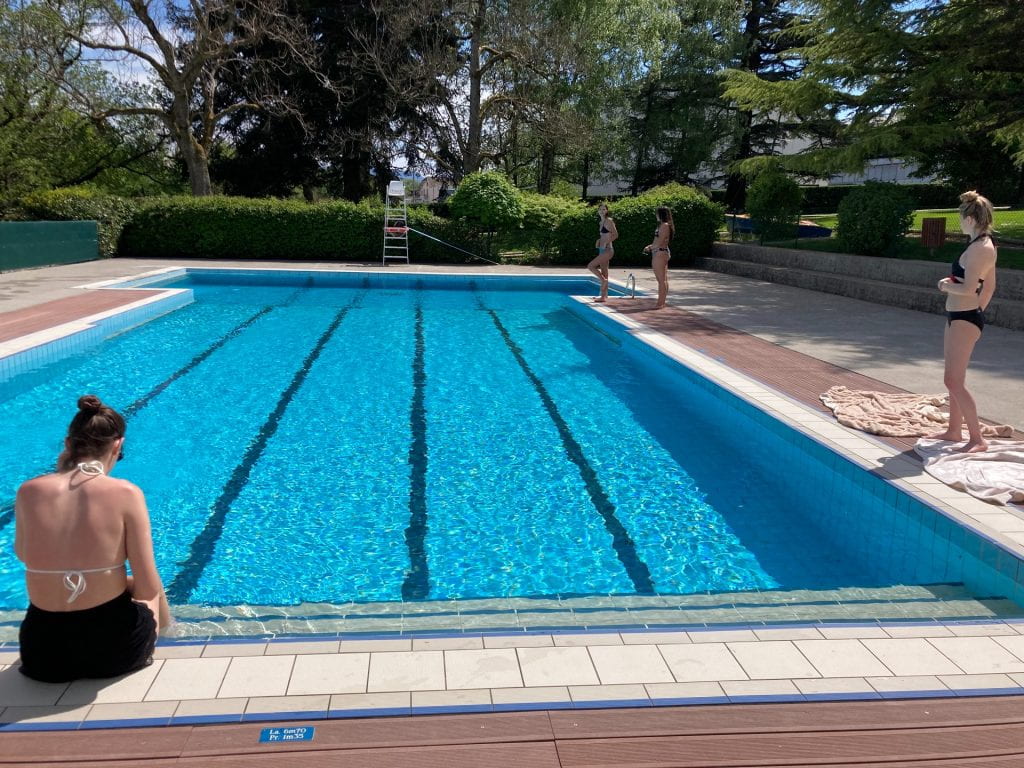
Author Archives: opblourido
Happy Birthday Isabella !!
Big Day, Graduation 2021 🎓
61st Graduation Ceremony at Collège du Léman
Happy Birthday Katia !!
Wellbeing Pillar 5. Self-Discipline
Following our Pastoral Programme , we watched this interesting video about How Happiness is dependent on self-discipline.
Self-discipline, or self control, means taking possession of our own mind. The power of thought is the only thing over which and human being has complete unquestionable control. We have the power of the self-determination, the ability to choose what out thoughts and action will be. If you direct your thought and control your emotions, you will ordain your destiny.
Take charge of your life. You are what you think !
Boarding Activities with Mr. Usher
🌊 When Mr. Usher, Director of Boarding, takes our students onto Lac Léman on a speedboat, be prepared to adjust your perspective whilst approaching Geneva’s famous Jet d’eau and discovering the coast from “the other side”. ⚓
#collegeduleman #internationalschool #ecoleinternationale #boardingschool #internat #geneva #switzerland #lacleman #lakegeneva #speedboat #jetdeau

Happy Birthday Lia !
Talking about Safe and Responsible Choices on a Sunny Sunday.
Today some of the girls went to the pool in Concha to enjoy the sun. They wanted to go to the lake, but because of some of their choices this week, they were not allowed and this allowed me to discuss with them the fact that ‘’ When we make undisciplined choices, there are consequences. Same for disciplined choices, only that the consequences are positive ‘’.
A few minutes ago we gathered together in the living room and discussed about it. The girls realised that if they want to be happy they have to make good choices, have self discipline and lead their lives more responsible. Life is a school that never ceases to teach us and that we are the master of our future and it if we don’t work well towards it the outcome will probably not be an enjoyable one.
We hope they take every word with them for life and start rethinking about their dure choices.
Well-being 5 Pillar. Decision Making. Consequences. Mistakes. The adolescent brain.
Following our Well-Being Programme, today’s conversation was about decision making and consequences.
Decision making is the process of making choices by identifying a decision, gathering information, and assessing alternative resolutions. Using a step-by-step decision-making process can help us make more deliberate, thoughtful decisions by organizing relevant information and defining alternatives.
 The Consequences of Choice: The Final Step in Decision Making
The Consequences of Choice: The Final Step in Decision Making
Before moving ahead with a decision, it is imperative to consider possible adverse consequences of feasible alternatives. The negative consequences of any action are as tangible as its benefits, sometimes more so. Once a decision has been made and implemented, any of its negative effects will eventually become real problems. The effects of decisions—good or bad—always outlive the decision-making process that produced them.
We all make mistakes . Helping teenagers learn from their mistakes
In today’s world where we tend to focus on success and money, mistakes are frowned on. This attitude has been past on to our teenagers. Some parents don’t expect their teens to make a mistake or fail at something. If their teen does make a mistake, the consequences can be severe.
Teenagers are very aware of the pressure on them to succeed and never make a mistake. Many teens who make mistakes are terrified of telling their parents because they fear their reaction. Some teens even consider suicide if they failed a test at school. Teens feel this pressure because parents arrange for tutors so they will get good grades. Also parents are sending their teens to courses to prepare them for the SAT test and parents are also arranging for consultants to help their teens get into good colleges. This is a great deal of pressure and stress.
Think back to when your son or daughter was learning to stand or walk. When the child fell, you would tell them good job for trying and keep trying because you will get it. We say this all the time to our little children. However, for some reason when that little child becomes a teenager, mistakes are not as acceptable and often teens get into trouble for making a mistake.
Yes, as a teen their mistakes get bigger and can be very serious. Obviously if a teenager made a mistake of shop lifting or driving while drunk, these are very serious issues and deserve negative consequences the first time they occur. However, if the mistake is they forgot to do their homework or they came home 20 minutes after curfew, these are not as serious and do not require a severe consequence. Remember the consequence needs to be related to the mistake. If it is too severe or if there is no consequence, the teen will not learn anything.
As parents, we need to remember that teens are starting to learn about relationships and how to handle responsibilities as adults. When they were younger they needed to learn how to walk and had to be toilet trained. We were patient with them as little children, why not be patient with them as teens?
When your teenager makes a normal life mistake, instead of getting mad or frustrated look at it as a teaching opportunity and a bonding opportunity. When your teen makes a mistake this gives you an opportunity to discuss what type of adult you would like to see them mature in to and what values as an adult you hope they will have. It is also a chance to grow closer because if you talk with your teen it give you the opportunity to learn about them and for your teen to learn about you.
We also watched this interesting video about the adolescent brain by Dan Siegel
It’s not so easy being an adolescent these days. We become aware of the world around us, are flooded with input through digital media about our extended global family, and learn about the world’s intense and overwhelming problems. And even more, puberty’s onset is getting earlier, and the time between our childhood dependence and adult responsibility over the last century has moved from a couple of years to a dozen or more.
For adolescents, this means that the pruning down of existing neurons and the laying down of myelin sheaths connecting the remaining linked neurons will continue years after we stop referring to them as “teenagers”




























